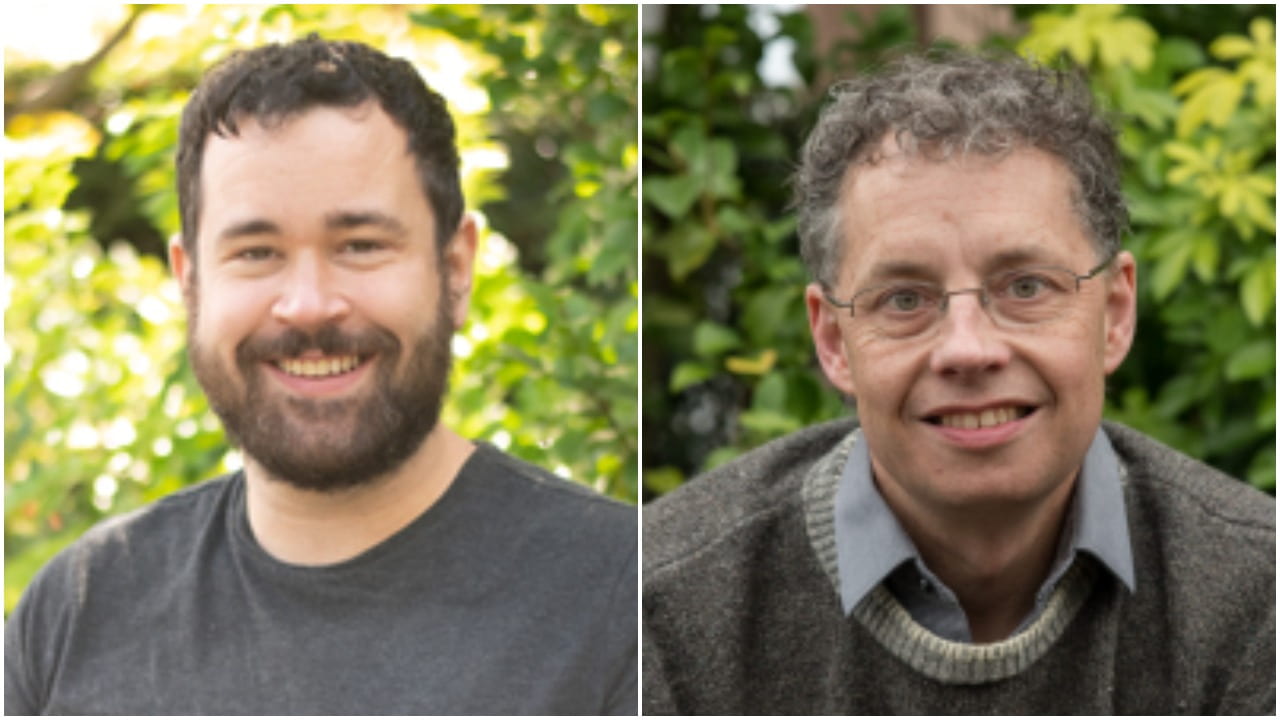In an article in the March 2022 edition of Scientific American, two researchers from the University of Washington’s Center for an Informed Public, Joe Bak-Coleman (pictured above, left) and Carl T. Bergstrom (pictured above, right), write about how the urgency of the COVID-19 pandemic prompted scientists to adapt to rapid communication and research collaboration.
While Bak-Coleman, a CIP postdoctoral fellow who studies how communications technology affects collective decision-making, and Bergstrom, a CIP faculty member and UW Department of Biology professor who studies how evolution encodes information within genomes and how institutions and behavioral norms influence scientific communication, note that this all-hands-on-deck response brought great scientific achievements — like the early genomic sequencing work that opened the door to COVID-19 vaccines — they write that “rapid and unorthodox channels of communication also could not solve all the problems scientists encountered.”
They continue in the article:
We took too long to recognize the importance of airborne transmission of the virus. We spent early 2020 washing our groceries but not wearing masks. Most critically, we have been largely unsuccessful at anticipating and managing the human element of the pandemic. By not accounting for ways that behavior would change in response to information—and misinformation—we have struggled to predict the size and timing of successive disease waves and virus variants. A collective failure to stop misinformation from spreading on social and traditional media platforms has left large segments of the population unvaccinated, vulnerable and unwilling to embrace measures such as masks and social distancing.
- Read the article, “A High-Speed Scientific Hive Mind Emerged From the COVID-19 Pandemic” in Scientific American



